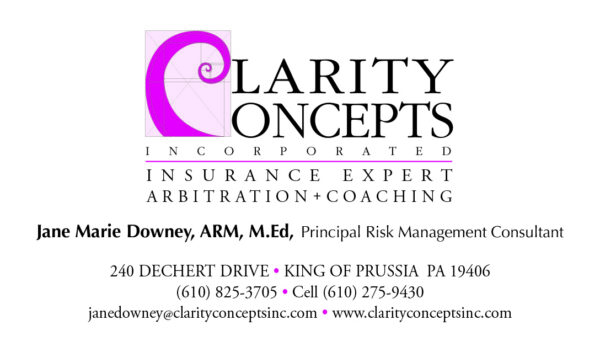Results For Articles or Consultants
Bad Faith
“By investigating a case aggressively at the outset, it was often possible to have a developed factual matter for analysis within 90 days, maybe as long as 6 months, depending on the cooperation of any third‑party claimant and other sources of information. By having that development, one could set accurate reserves earlier. The insurer would know where it stood, and actuaries could also have access to that data and reassess a particular book of business or a particular program to see how profitable it may be over time and make adjustments, rather than canceling a program as unprofitable, should development and accurate reserve setting take longer, such as years versus months.
Another important function was the interaction between claims handlers and underwriters. The two go hand in hand. Underwriters have a certain view of the world and ways they want to approach coverage, but it’s the claims people who must handle the result and keep up to date with the latest case law affecting liability and/or coverage. Such teamwork results in tighter and more successful programs including decisions as to whether or not policy language needs to be changed or the need to add additional exclusions based on developing appellate decisions that might create new perils. That level of communication was important, especially for innovative insurance companies. Where the intent is to cover something as communicated to the applicant, the claim department might not be aware of it, resulting in a claim denial.”
Michelle Villarreal began her claims career over 30 years ago, with Cigna Companies while attending St. Mary’s University in San Antonio. She is the President and CEO of Occupational Accident Risk, Inc, a Third Party Administrator specializing in Texas work injury programs. They have been in the Third Party Administration industry since 2006, offering services…
Steve is a 30+ year veteran of property and casualty insurance claims. He holds the CPCU and AIC designations and is Past President (2006) of the National Society of Professional Insurance Investigators (NSPII). Over the course of his carrier career, Steve worked as a direct claim handler, manager, litigation examiner, senior claim specialist and director…
“An insurer’s knee-jerk denial letter cannot be saved from triggering the penalties [of bad faith] merely because the insurer’s lawyer is able to construct a post-hoc justification for denying coverage. “[I]nsurers that unreasonably delay the evaluation of the insureds’ claims [can be found liable for bad faith], even if the insurer’s ultimate assessment of the claim proves to be correct ‘”Holding otherwise could potentially result in insurers taking the gamble that a denial based on a cursory review will be rescued by a clever trial lawyer.”
I serve as the Principal of Insurance Claims and Litigation Consultants, LLC, a firm that provides expert witness services and testimony on claims and lawsuits involving insurance coverage, bad faith, underwriting, agent-broker liability, regulatory issues and good faith claims handling practices. I also provide consultation and oversight of pre-suit and litigated coverage matters that potentially…
(From the Summer 2022 issue of CPCU INSIGHTS…)




